Private Property Research Reports

Economic Liberty | Private Property
Entrepreneur From Home: How Home-Based Businesses Provide Flexibility and Opportunity—and How Cities Can Get Out of Their Way

Civil Forfeiture | Private Property
Frustrating, Corrupt, Unfair
Victims of civil forfeiture call it frustrating, corrupt and unfair. This first-of-its-kind survey describes the experiences of victims of one civil forfeiture program, Philadelphia’s.
Other Property Rights Abuses | Private Property
A Case Study of Municipal Taxation by Citation
This study examines taxation by citation—local governments using code enforcement and the justice system to raise revenue rather than solely to advance public health and safety. It does so through a detailed case study of…
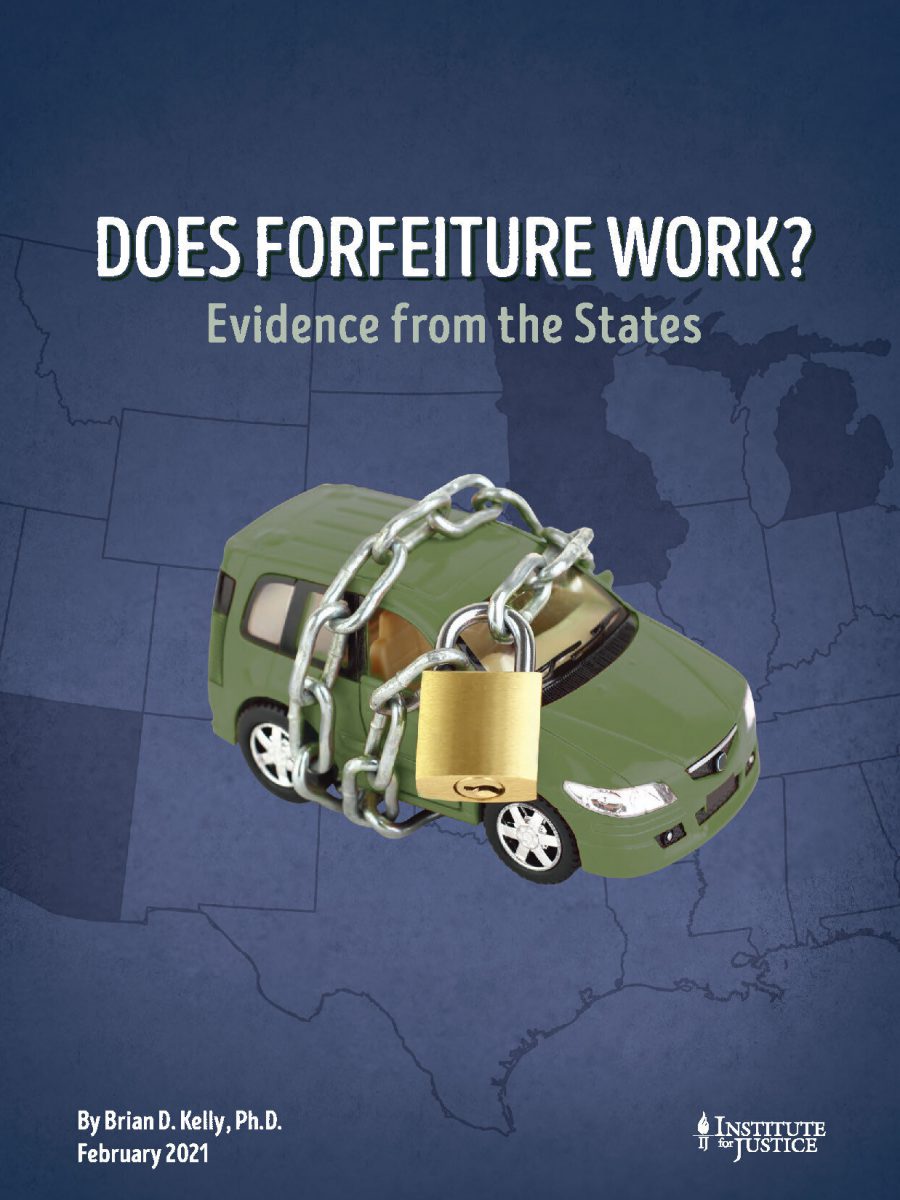
Civil Forfeiture | Private Property
Does Forfeiture Work?
Forfeiture is a controversial tool police and prosecutors use to take and keep people’s cash, cars and even homes under the guise of fighting crime. This study is the first to look at whether state…
Civil Forfeiture | Private Property
A New Panel Dataset for Studies Using Substate Units of Analysis and Indicators of Drug Activity
This research note reports on the creation of a new panel dataset using multiple waves of substate estimates from the National Survey on Drug Use and Health. It also provides identifying information that contains state,…
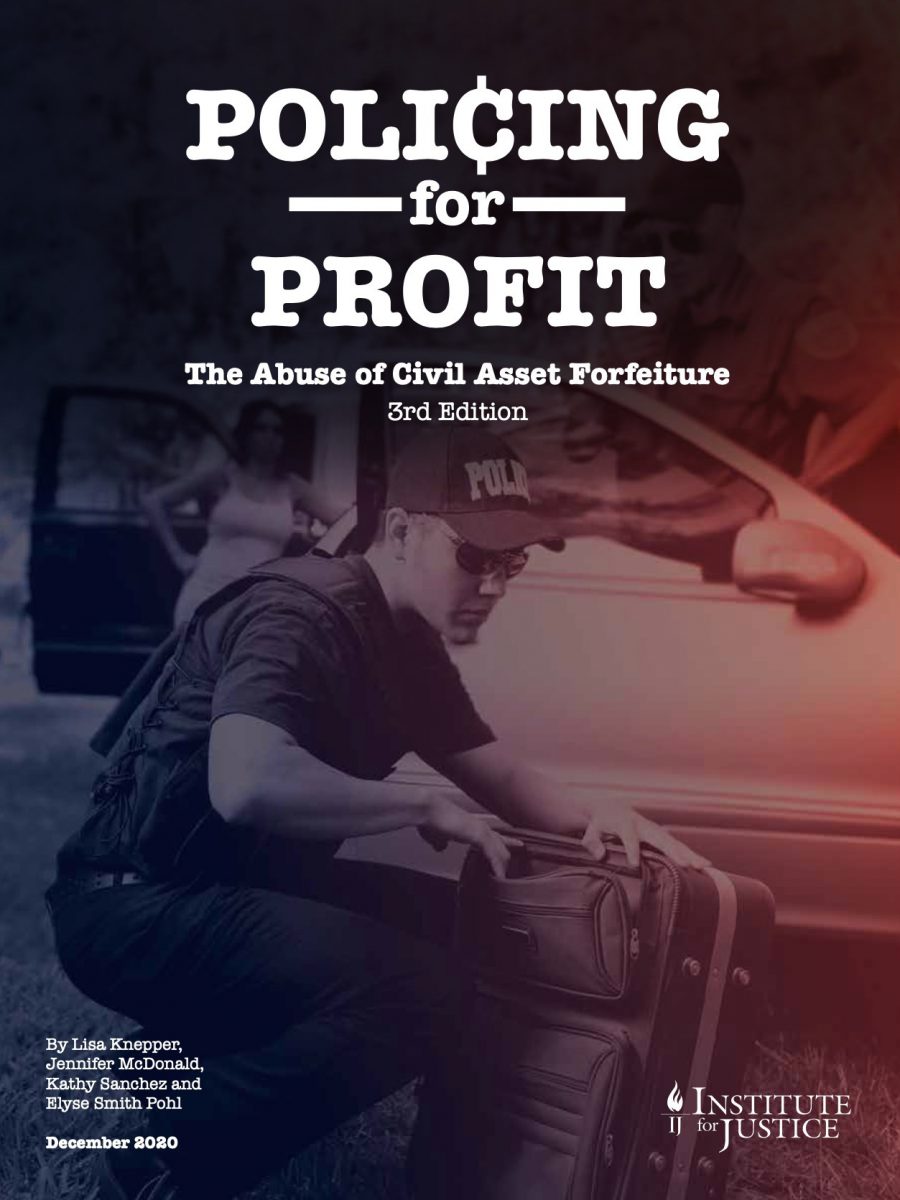
Civil Forfeiture | Private Property
Policing for Profit
Nationwide, civil forfeiture is a massive threat to property and due process rights. So finds the third edition of Policing for Profit: The Abuse of Civil Asset Forfeiture. The report presents the largest ever collection…
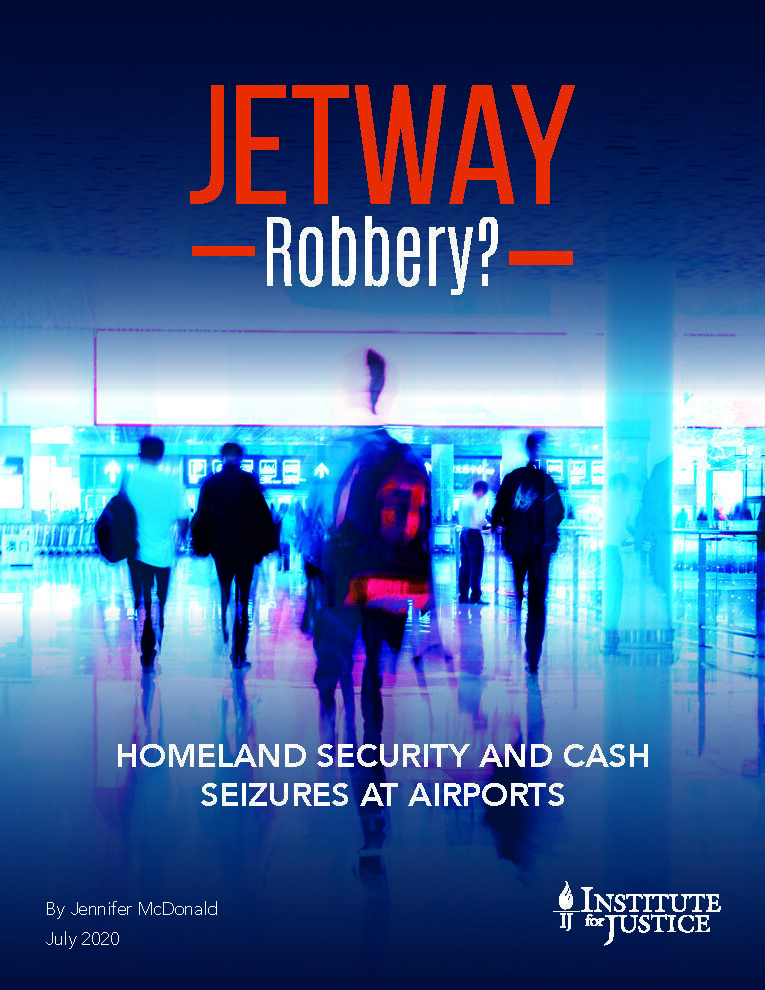
Civil Forfeiture | Private Property
Jetway Robbery?
Law enforcement agencies routinely seize currency from travelers at airports nationwide using civil forfeiture—a legal process that allows agencies to take and keep property without ever charging owners with a crime, let alone securing a…

Code Enforcement | Fines and Fees | Private Property
Municipal Fines and Fees
Cities and towns nationwide use their power to enforce traffic, property code and other ordinances to raise revenue rather than solely to protect the public. And, as this report finds, a wide range of state…
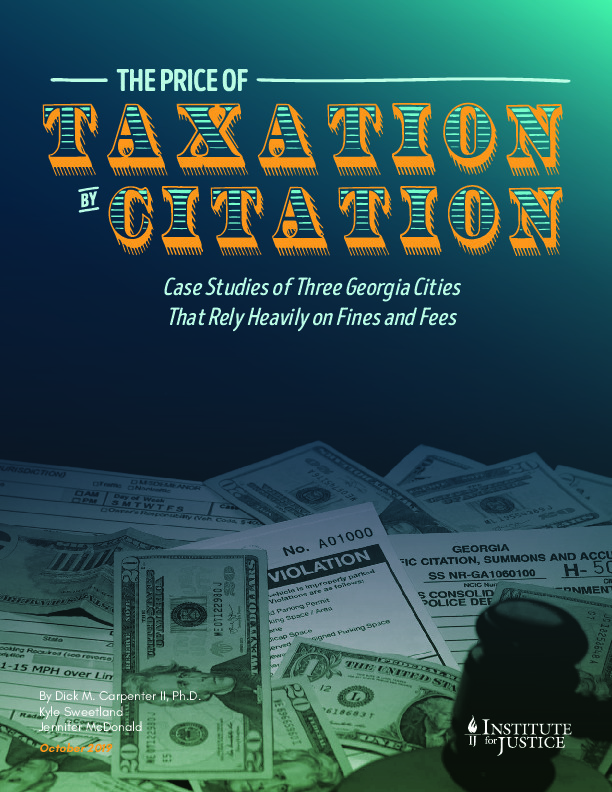
Code Enforcement | Fines and Fees | Private Property
The Price of Taxation by Citation
Taxation by citation is when local governments use their power to enforce traffic and other ordinances to raise revenue rather than solely to protect the public. This report explores the phenomenon via case studies of…
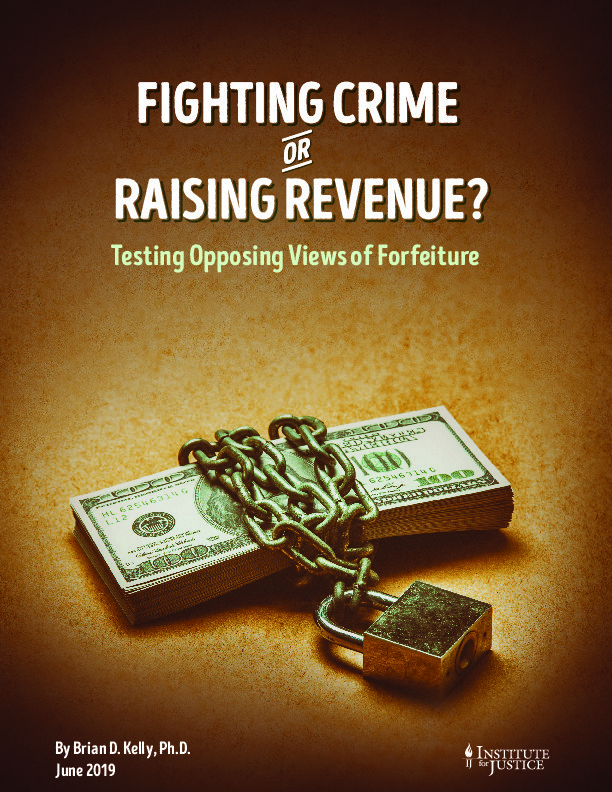
Civil Forfeiture | Private Property
Fighting Crime or Raising Revenue?
Forfeiture is a controversial tool governments use to take and keep property often without charging or convicting anyone with a crime. Police typically get a portion of the proceeds. Proponents argue forfeiture helps police fight…
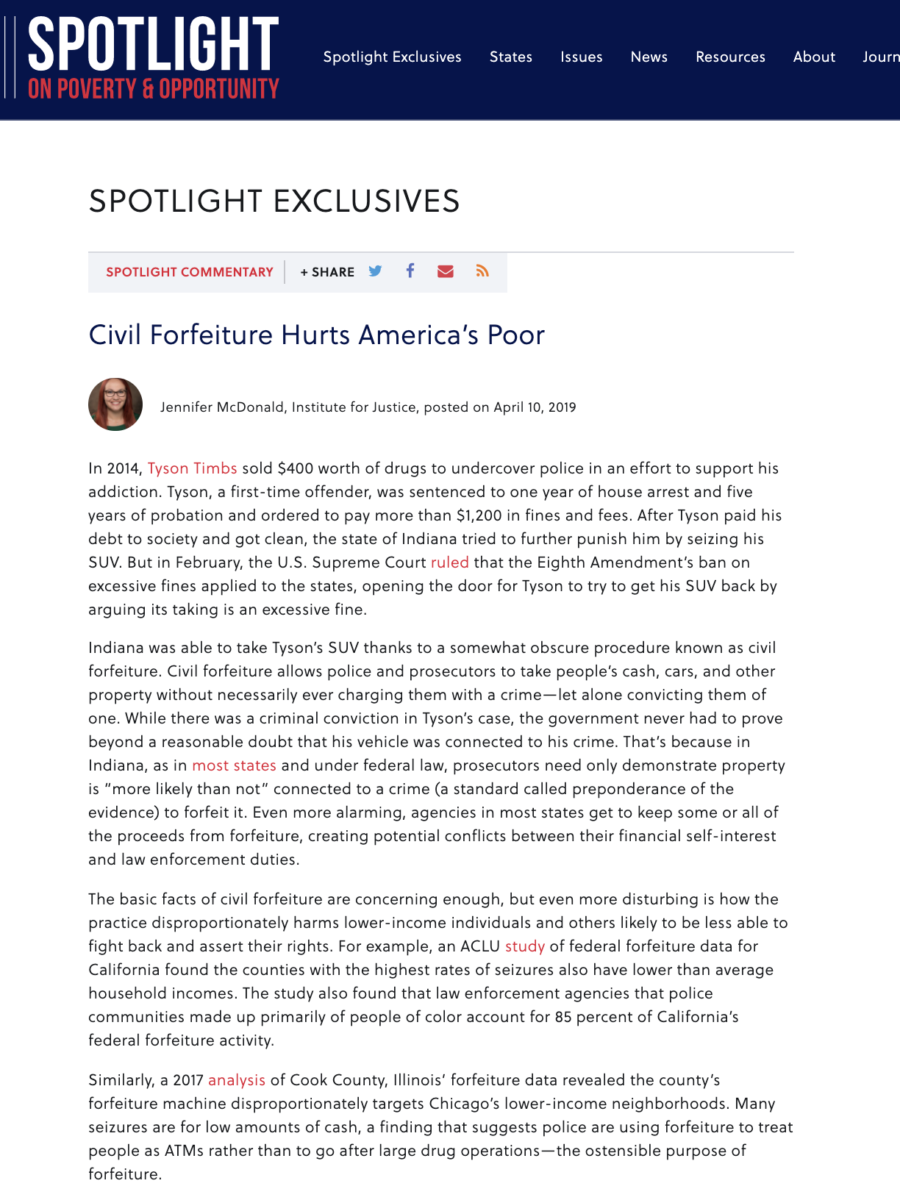
Civil Forfeiture | Private Property
Civil Forfeiture Hurts America’s Poor
In 2014, Tyson Timbs sold $400 worth of drugs to undercover police in an effort to support his addiction. Tyson, a first-time offender, was sentenced to one year of house arrest and five years of…
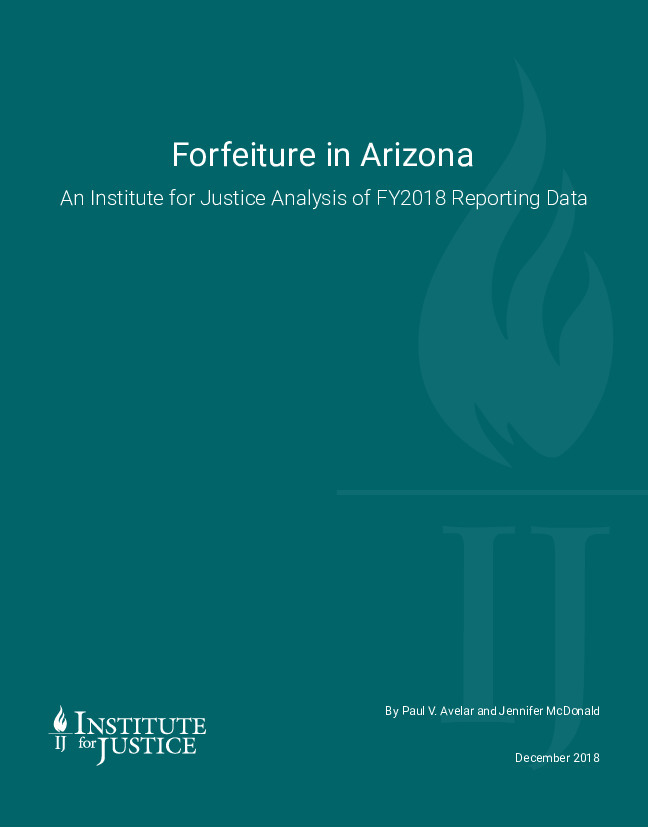
Civil Forfeiture | Private Property
Forfeiture in Arizona
In 2017, Arizona adopted incremental but important bipartisan reforms of the state’s civil forfeiture system. These reforms included new transparency requirements for forfeiture, obliging agencies to report the value, type and date of a property…
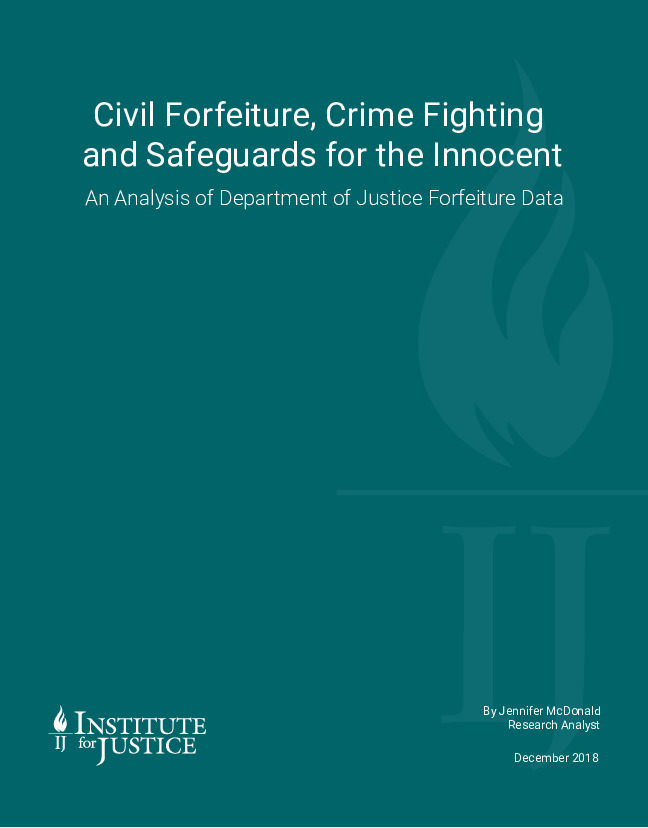
Civil Forfeiture | Private Property
Civil Forfeiture, Crime Fighting and Safeguards for the Innocent
In 2017, the Department of Justice revived a controversial federal forfeiture program the previous administration had sharply curtailed. In defense of these “adoptive forfeitures” or “adoptions,” as well as of civil forfeiture in general, the…
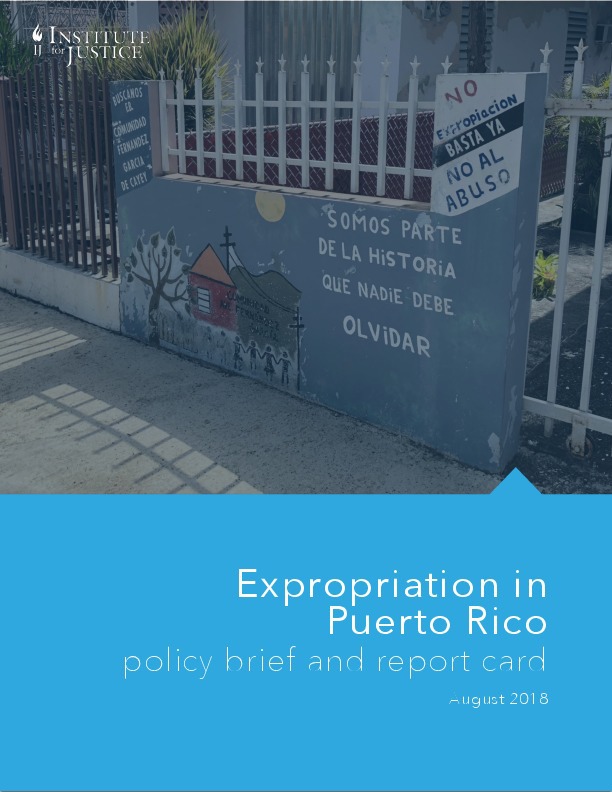
Eminent Domain | Private Property
Expropriation in Puerto Rico
In a new report (released August 6), the Institute for Justice (IJ) gives Puerto Rico’s eminent domain laws a grade of “F.” IJ is a nonprofit, civil liberties law firm dedicated to ending eminent domain…
Civil Forfeiture | Private Property
The Questionable Ethics of Civil Forfeiture
On a cool, sunny November day, Mark Brewer – a disabled decorated U.S. Air Force veteran – was driving through the state of Nebraska on his way to Los Angles to visit his uncle. While…

Economic Liberty | Private Property
Finding the American Dream at Home
Across the country, millions of enterprising people are running businesses out of their homes. This report outlines the myriad benefits of home-based businesses and suggests that government regulations curtailing them are short-sighted. It details how…

Civil Forfeiture | Private Property
Forfeiture Transparency & Accountability
Every year, local, state and federal law enforcement agencies across the United States seize and keep billions of dollars in cash, cars, homes and other property using a legal tool called forfeiture. Criminal forfeiture requires…
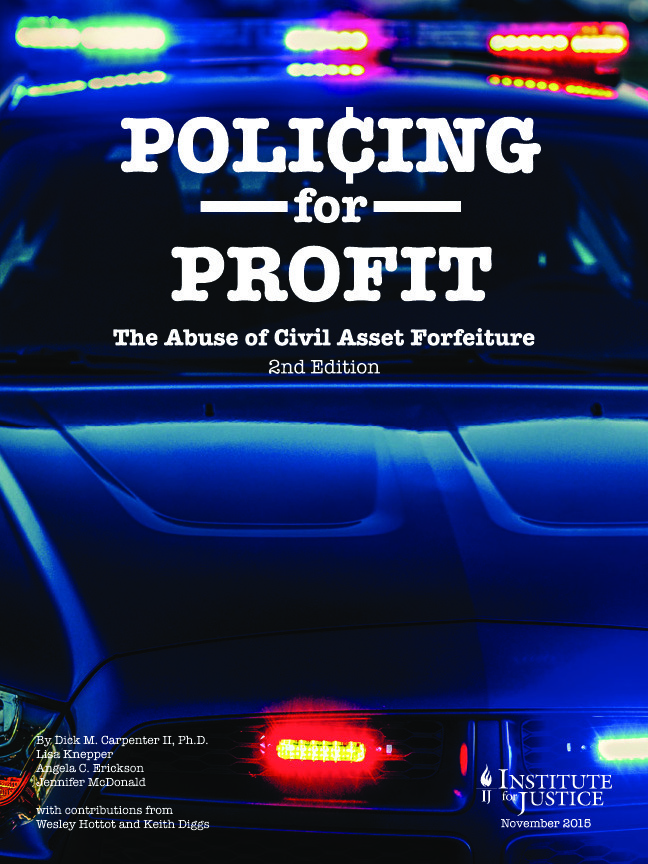
Civil Forfeiture | Private Property
Policing for Profit: Second Edition
Policing for Profit, 2nd Edition Published in 2015, this is an older edition of IJ’s landmark Policing for Profit report. You can download the report here, but please see the third and current edition for the most up-to-date…
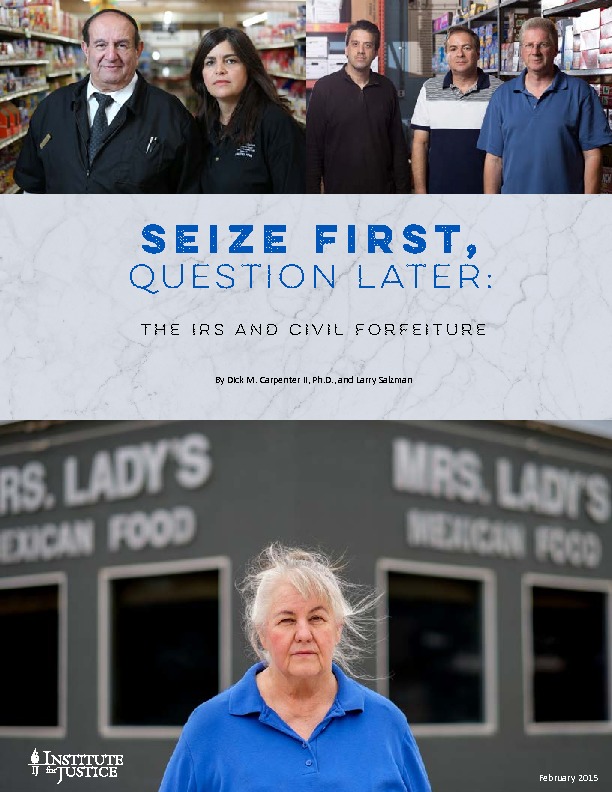
Civil Forfeiture | Private Property
Seize First, Question Later
Thanks to federal civil forfeiture laws, the Internal Revenue Service has seized millions of dollars from thousands of Americans’ bank accounts without proof of criminal wrongdoing.
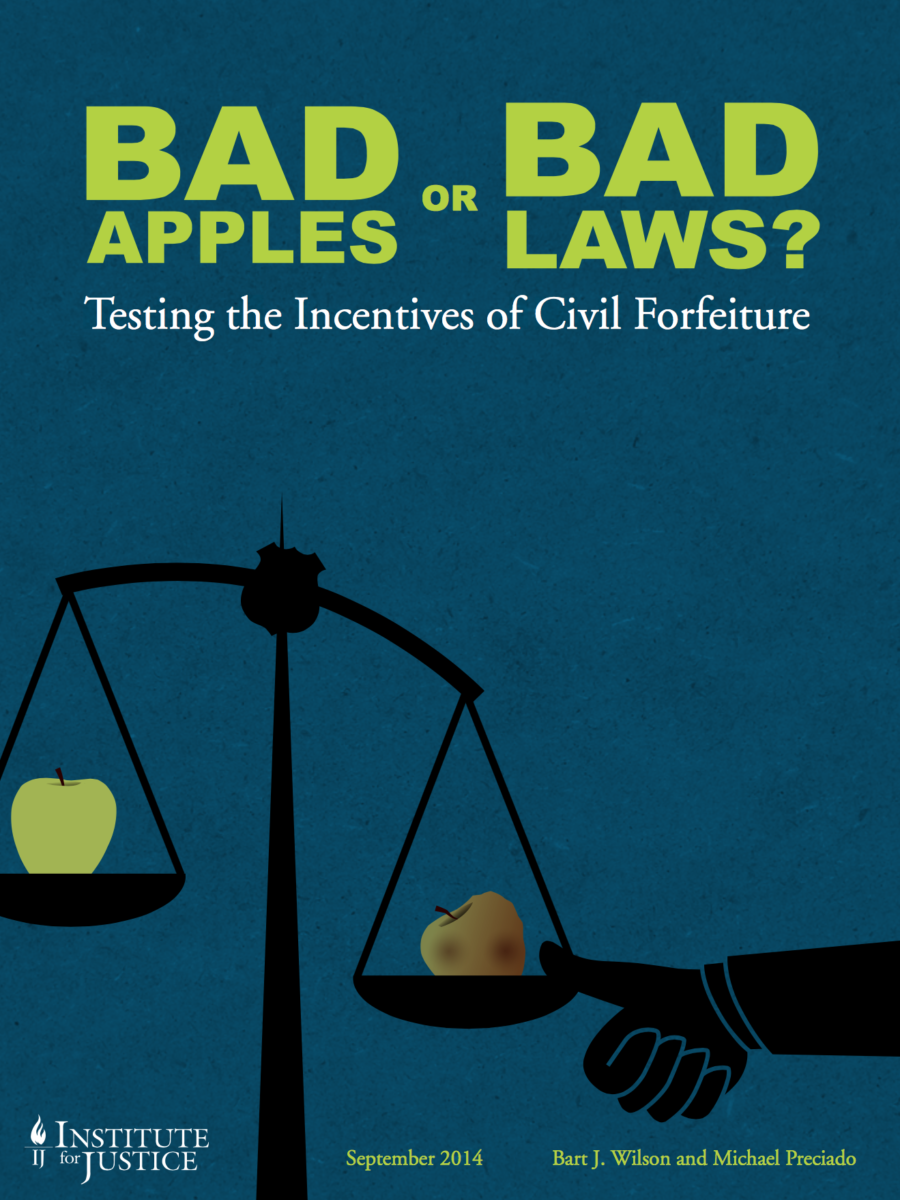
Civil Forfeiture | Private Property
Bad Apples or Bad Laws?
An original experiment finds that civil forfeiture laws create a strong temptation for law enforcement to seize property to pad their own budgets.
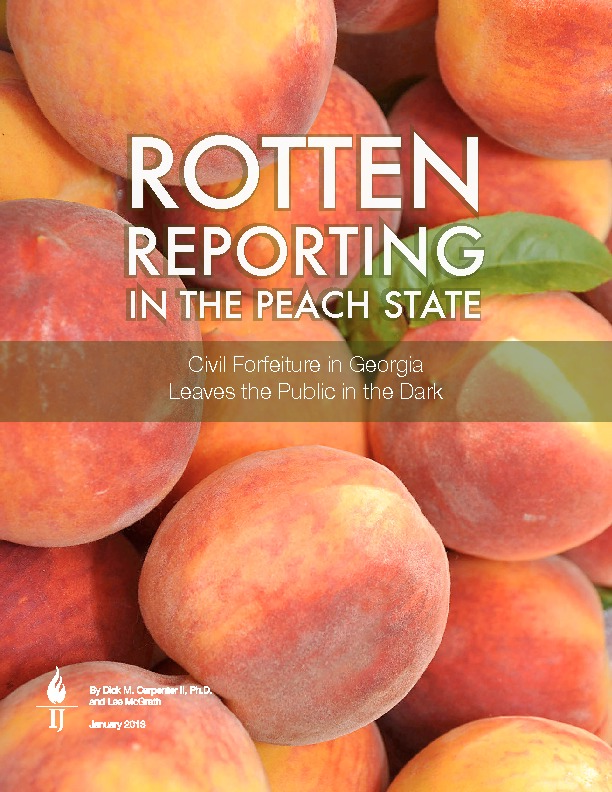
Civil Forfeiture | Private Property
Rotten Reporting in the Peach State
Georgia has some of the worst civil forfeiture laws in the nation, a problem compounded by law enforcement agencies’ routine failure to report forfeiture revenue and expenditures as required by law. But a 2011 Institute…
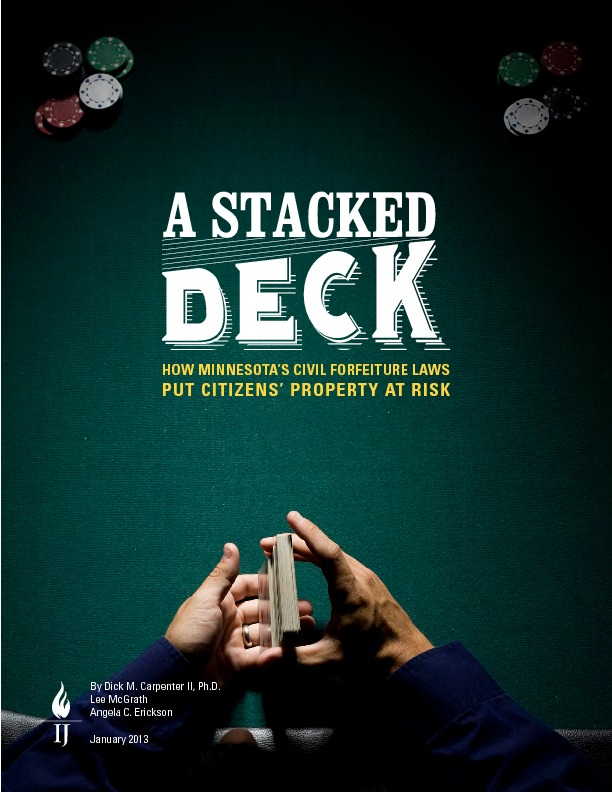
Civil Forfeiture | Private Property
A Stacked Deck
State data show that from 2003 to 2010, forfeiture revenue in Minnesota jumped 75 percent, even as crime rates declined, and the average value of forfeited property was only $1,000.
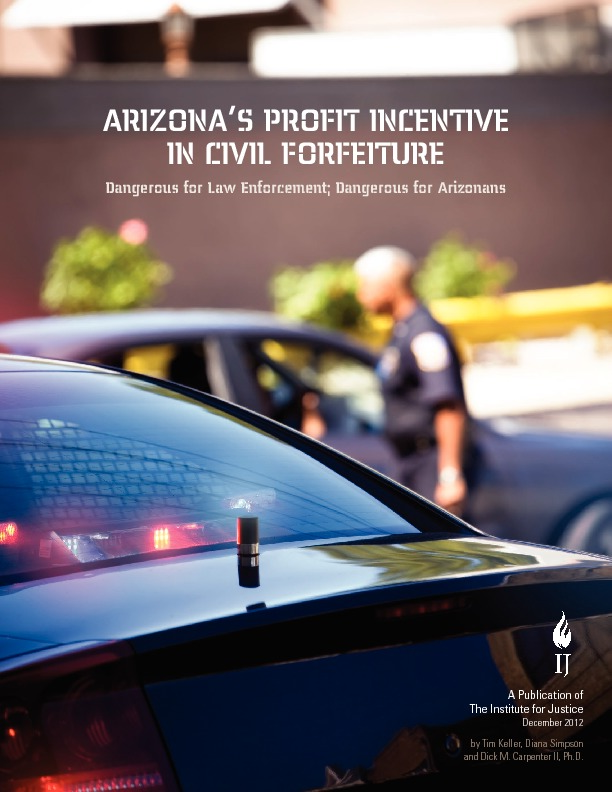
Civil Forfeiture | Private Property
Arizona’s Profit Incentive in Civil Forfeiture
Arizona’s civil forfeiture laws need to be reformed. In the upside-down world of civil forfeiture, police and prosecutors can seize and keep cash and property that was allegedly involved in criminal activity—without ever proving a…
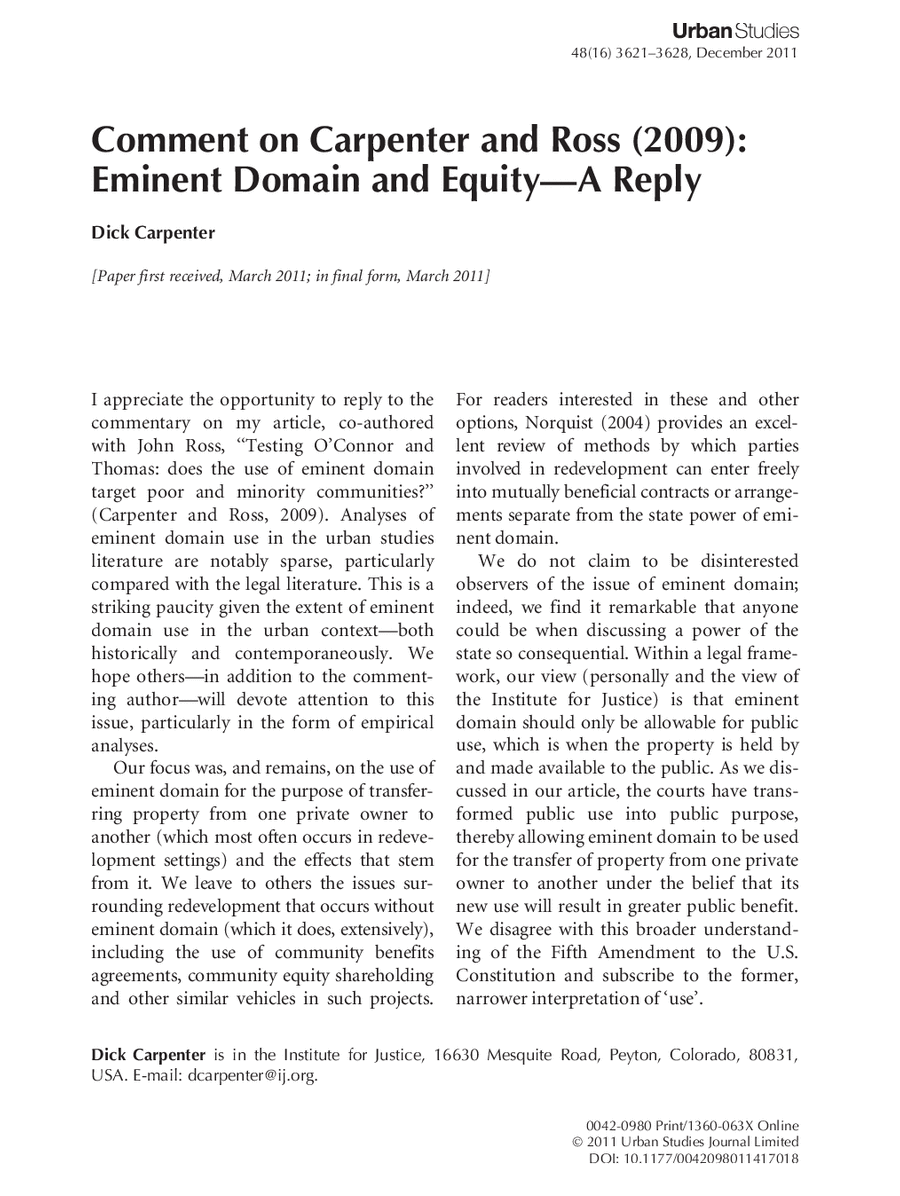
Eminent Domain | Private Property
Comment on Carpenter and Ross (2009): Eminent Domain and Equity—A Reply
In this report, Director of Strategic Research Dick Carpenter responds to commentary on his article about the effects of eminent domain on poor and minority communities. Suggested citation: Carpenter, D. M.
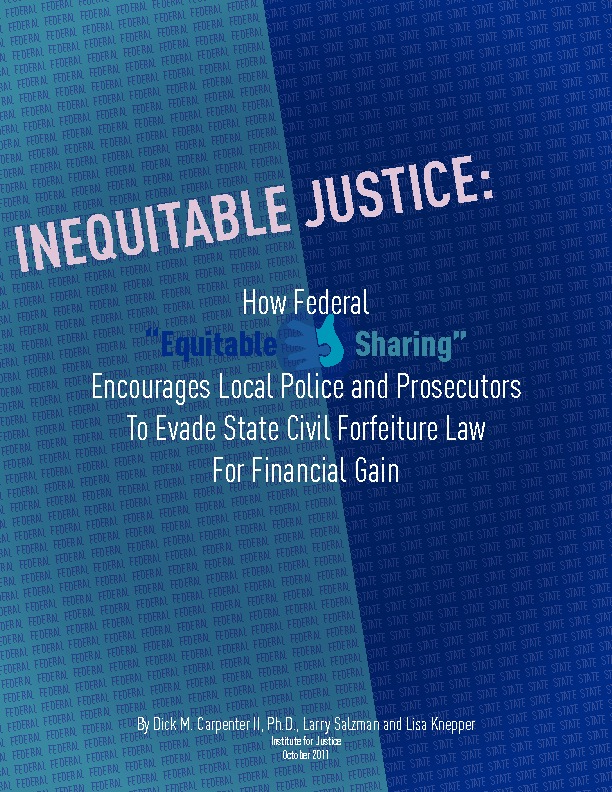
Civil Forfeiture | Private Property
Inequitable Justice
This report examines a federal law enforcement practice known as “equitable sharing.” It enables—indeed, encourages—state and local police and prosecutors to circumvent the civil forfeiture laws of their states for financial gain. Civil forfeiture is…
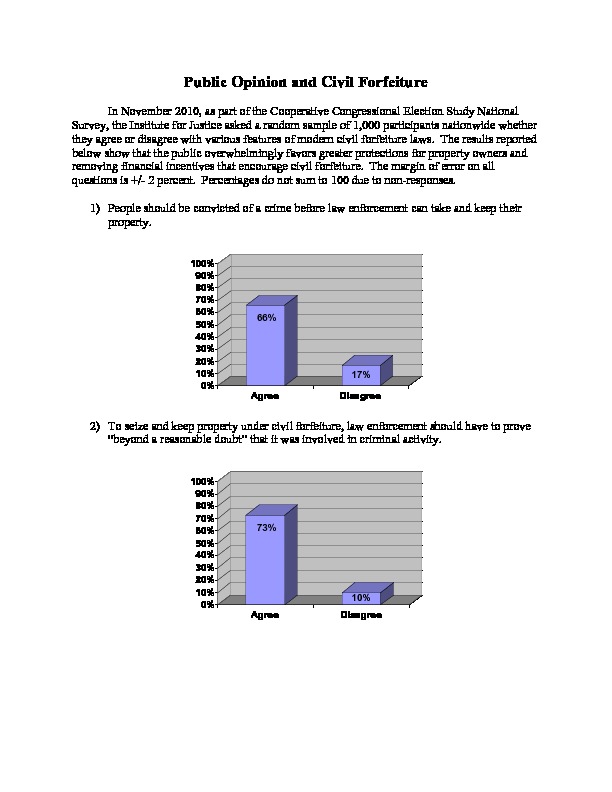
Civil Forfeiture | Private Property
Public Opinion and Civil Forfeiture
In November 2010, as part of the Cooperative Congressional Election Study National Survey, the Institute for Justice asked a random sample of 1,000 participants nationwide whether they support various features of modern civil forfeiture laws.
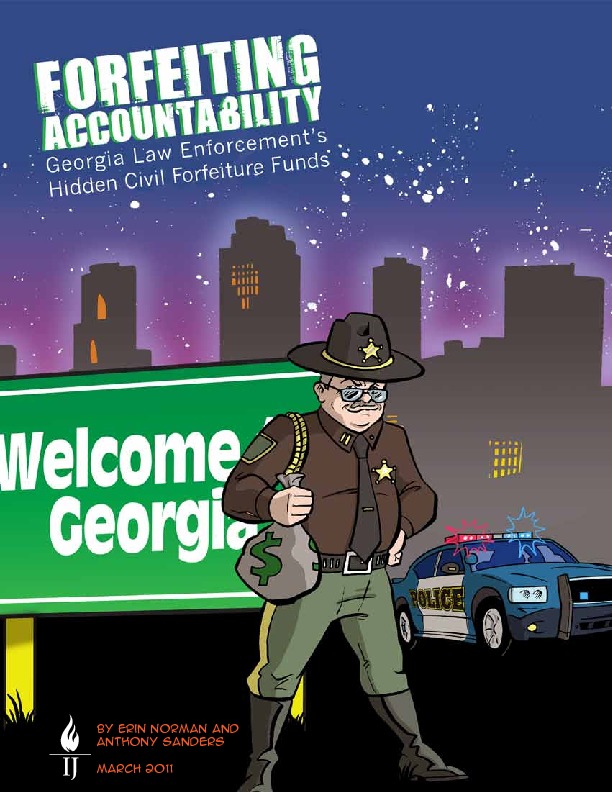
Civil Forfeiture | Private Property
Forfeiting Accountability
Georgia has some of the worst civil forfeiture laws in the country. But at least state law requires law enforcement to publicly report annual forfeiture proceeds and expenditures. Public reporting ought to help check abuse…
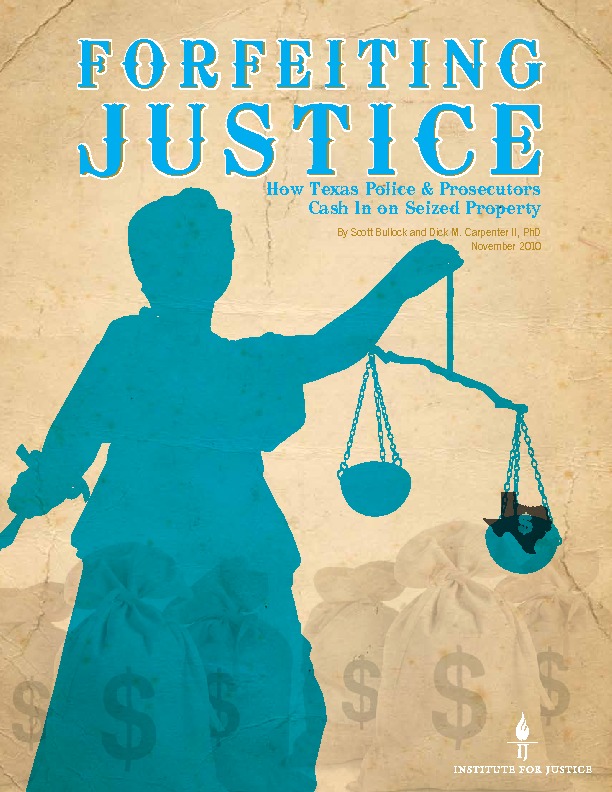
Civil Forfeiture | Private Property
Forfeiting Justice
Texas law gives police and prosecutors generous rewards for seizing people’s property—without even having to prove the owner committed any crime. And the law makes it so hard for owners to fight for the return…
Eminent Domain | Private Property
Do restrictions on eminent domain harm economic development?
After the U.S. Supreme Court upheld in the Kelo decision the use of eminent domain for private-to-private transfer of property for economic development, public outrage was followed by attempts to restrict such use of eminent domain. Opponents…
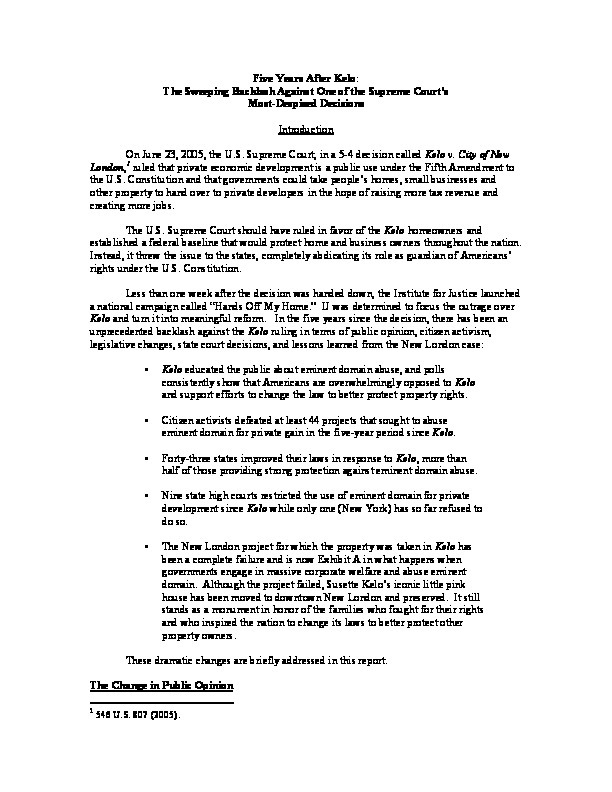
Eminent Domain | Private Property
Five Years After Kelo
On June 23, 2005, the U.S. Supreme Court, in a 5-4 decision called Kelo v. City of New London,[1] ruled that private economic development is a public use under the Fifth Amendment…
